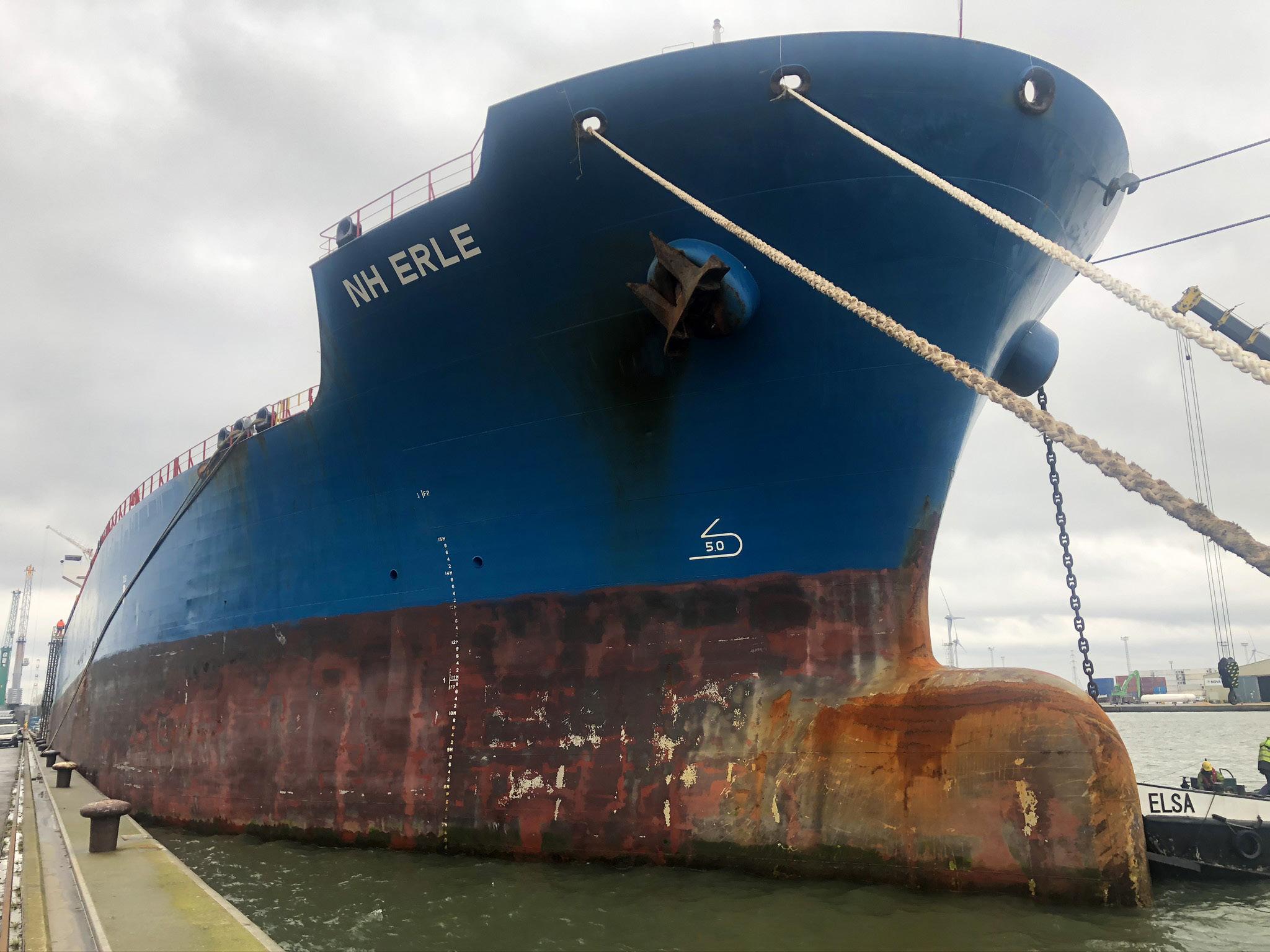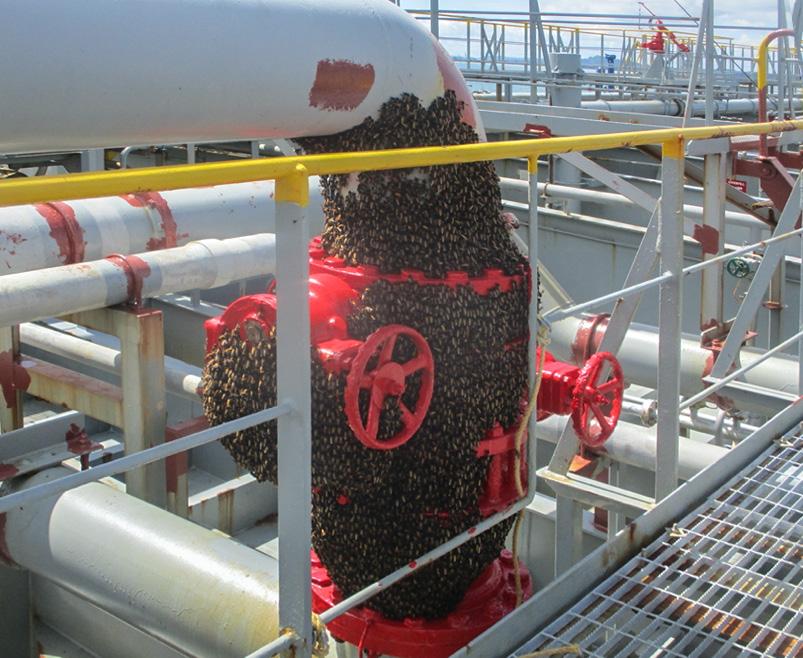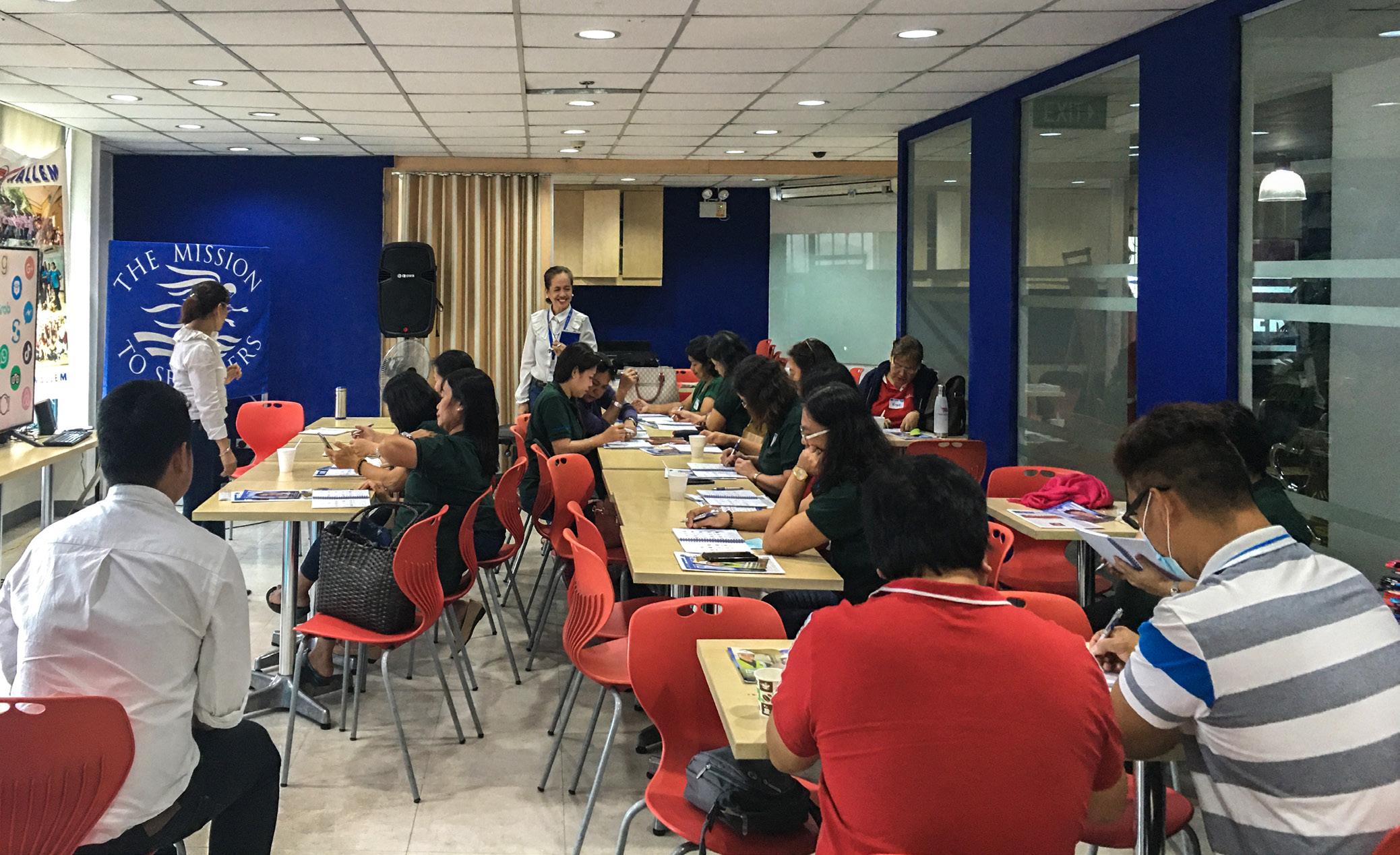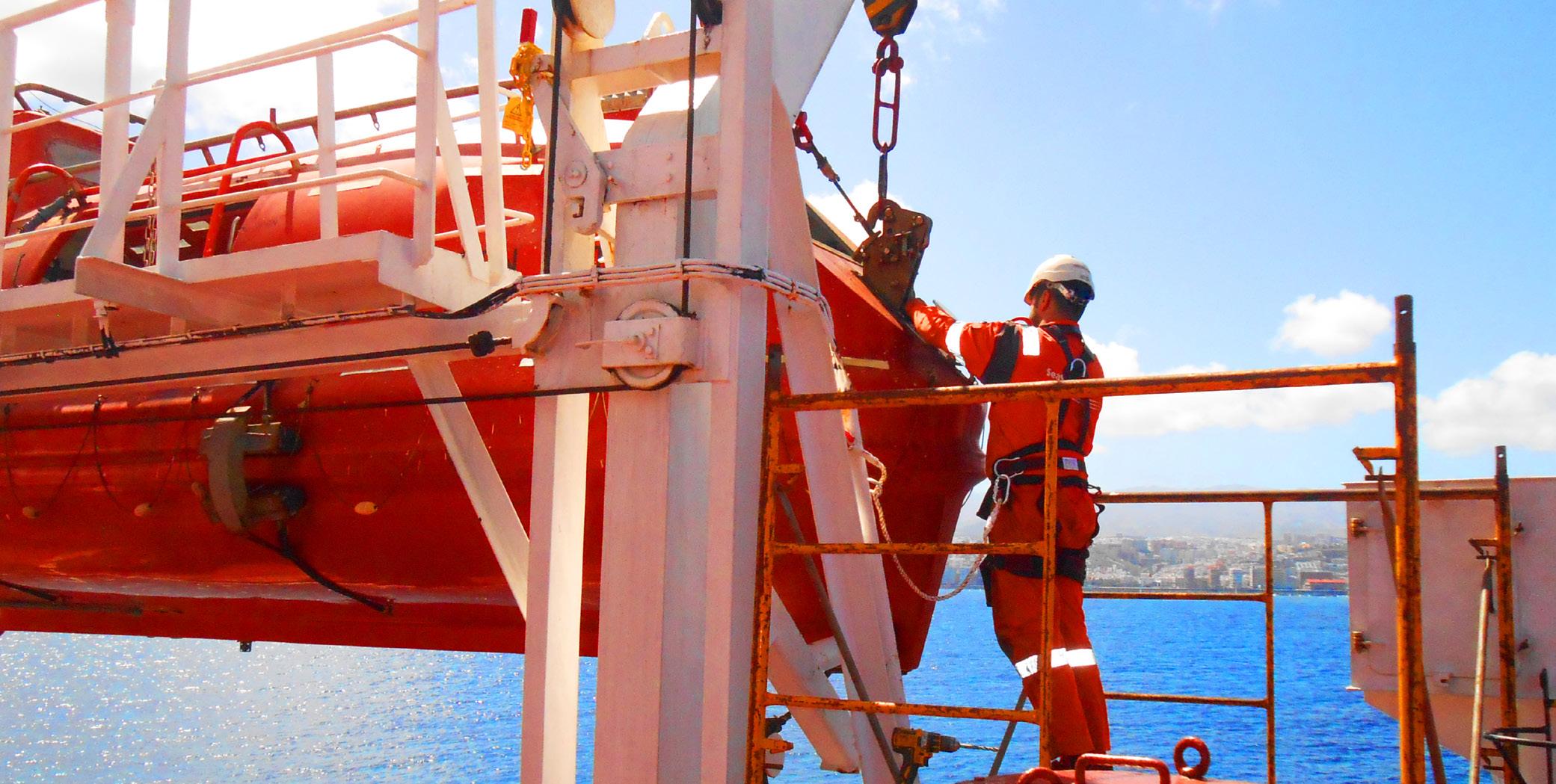
6 minute read
Wallem World
from Wallem Pulse Issue 3
by Wallem Group
FLEET
Erviken receives CAP 1 Rating
Advertisement
A Wallem-managed 152,146 dwt crude oil tanker built in 2004 received CAP 1 rating by classification society ABS. The certification implies the 16-year-old Erviken is close to newbuild condition and allows its owner to demonstrate the vessel’s quality and suitability for charter.
As a vessel ages, the way its hull, machinery and equipment are maintained becomes an increasingly critical factor in determining its likelihood of accidents, failures and pollution. CAP is a voluntary program, initially developed by the oil industry, to assess the continued fitness of older ships to carry their cargo safely. The assessment entails a detailed survey, including strength and fatigue analysis of the vessel’s structure and extensive testing of the vessel’s machinery, equipment and cargo systems.
The verification survey was carried out during a sailing visit by the ABS-CAP Committee from Houston, Texas after Erviken underwent extensive work at a Turkish shipyard last year. Inspectors scrutinized around 300 locations around the ship, from main deck to ballast tanks to demonstrate the vessel’s condition after the upgrade.
Norwegian sisters join Wallem fleet
Two 49,999 DWT product/chemical tankers NH SIRI and NH ERLE became the latest addition to the Wallem managed fleet. The pair will join four other vessels that Wallem is already managing for owner Nyhill Shipping of Norway. Built at Hyundai Mipo in 2010, the two vessels are currently trading worldwide under the Norwegian flag.

NH Erle

NH Erle Crew

NH Siri Crew
FSL Osaka crew abuzz at discovering stowaways
A swarm of honeybees recently descended on FSL Osaka while the vessel was at Muara anchorage in Brunei. What drove the hivemind to select the No. 1 Line Crossover exactly at the valve location on the starboard side and time their arrival three hours before berthing was unclear. Fortunately for the crew, the vessel was due to berth port side for discharging operations.

The unexpected visitors didn’t hang around long however. They buzzed off when they discovered the vessel would shortly be heading for the busy Port of Singapore. Thank you to Capt Sameer Khanna, Second Officer Castelino Derek Colin and Deck Cadet Aditya Mohare for sharing the story and photos.
SEAFARERS
Wallem supports Mission monitor crew happiness
Wallem is partnering with the Mission to Seafarers to support its work in running the Seafarers Happiness Index – an ongoing quarterly survey measuring how satisfied (or not) seafarers are about various aspects of their working life. Later this year, the organisations will propose an action plan geared at overcoming the issues most regularly raised by seafarers.
Wallem Group CEO Frank Coles said: “We are focused on quality ship management and this means quality crew, and quality crew should be happy. Working conditions and mental health are a priority and this survey is a great way to get a representative sample of actual seafarers’ views on life at sea and pinpoint what can be improved. Hopefully we can then use this to improve the lives of all seafarers.”
The index is based on a set of ten questions covering mental and physical health, diet, rest, workload, connectivity, training, access to shore leave, as well as relationships at home and onboard. The results give a voice to seafarers and provide a picture of the successes but also highlight problems within the occupation. Trends in the data can reveal opportunities to improve and develop.
In the latest report period covering October through December 2019, responses from 2000 seafarers suggest overall happiness dipped slightly to 6.13 out of a possible 10 from 6.59 the previous quarter.
To learn more and take part in the survey, visit happyatsea.org
Women of Wallem participate in WeCare workshop
Members of Women of Wallem (WoW) network in the Philippines recently took part in WeCare workshop on how to get the most out of social media and electronic communications in managing relationships with partners working faraway at sea.

Set up by the Mission to Seafarers, WeCare was developed to help seafarers and their families navigate some of the challenges they may experience. Besides covering responsible and safe use of social media, texting and emails, the workshop held in Manila offered advice on how to manage expectations and insights to what it’s like for their partners working at sea.
The WoW members came out feeling better informed about both the benefits and the downsides of electronic communication and look forward to putting their new knowledge into practice.
REGULATIONS
IMO Resolution for lifeboat maintenance
From 1 January 2020 new IMO requirements came into force concerning the periodic servicing of life saving appliances. Resolution MSC.402(96) also amends the requirements for authorization of service providers carrying out the periodic servicing.
In short, owners and operators must ensure that all inspections and maintenance (examinations, operational tests, overhaul and repair) of equipment are carried out by personnel certified by an authorized party for each make and type/model of equipment to be worked on.

With a global network of trained and certified engineers, SeaSafe services lifesaving appliances (LSA) and firefighting equipment (FFE) from more than 40 manufacturers. It has been audited by DNV GL to meet the new IMO requirements and authorized by the Panama and Liberia flags with approval from Bahamas expected soon.
OPINION
Frank Coles, Wallem Group CEO
2020 in maritime and this is not about IMO 2020 The biggest challenge for the industry is facings its hard truths. The biggest challenge for managers will be like Poseidon found on the end of a trident.
The three prongs being security, crew and technology challenges.
The piracy challenges are growing, and the risks are significant. The additional costs for security and safe passage have no clear solution, and industry leadership has largely left the topic alone. The problem needs a solution from government, from industry bodies and clarity on who is going to pay for the safety of the ship and crew.
To say nothing of the possible impending heightened security issue in the Middle East.
Crew welfare continues to be largely talk and buzzwords, and little is done to really advance these issues to a standard and level that a modern professional operation should be operating at.
Criminalisation, poor working conditions, poor and expensive communications, pay abuse, and several other factors continue to make the industry a challenge to keep quality staff.
On the technology front, it is hard to know where to start on the issues. Scrubbers and fuel quality are likely to both bring ships to a grinding halt. Either by excessive maintenance or wear. Costs are likely to rise in commercial claims as well as keeping equipment working. Despite all that is written, the industry is largely way behind the technology curve on safe cyber solutions, communications solutions and a proper robust operational solution for performance and operational optimisation.
2020 will largely be a stumbling year as we all trip over scrubbers, bad fuel and pirates. 2020 will be the year when low sulphur powered ships carry huge amounts of coal to high sulphur burning countries in large numbers. Somewhere out there, someone has to see the irony in this madness.






